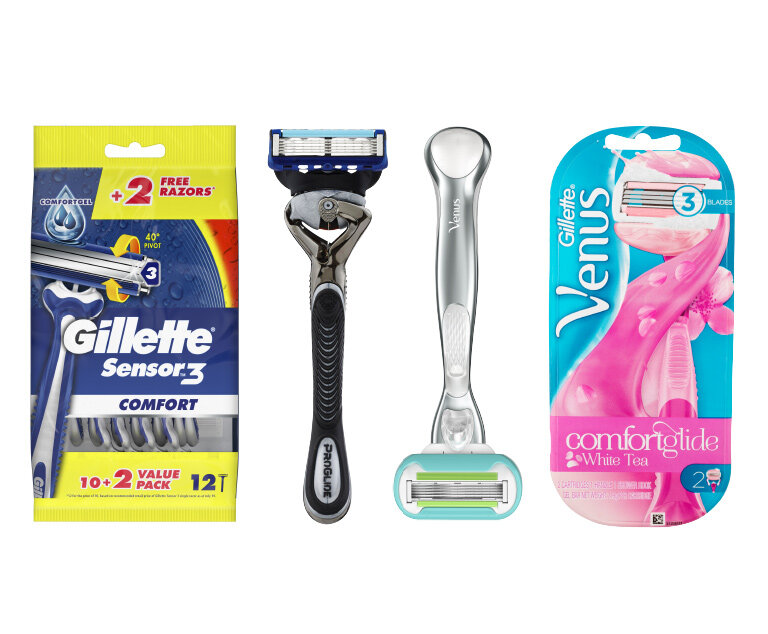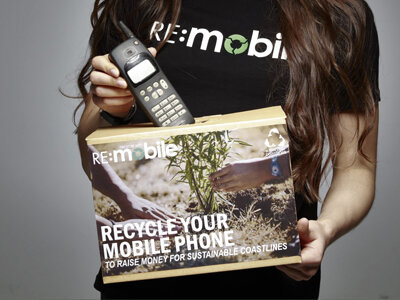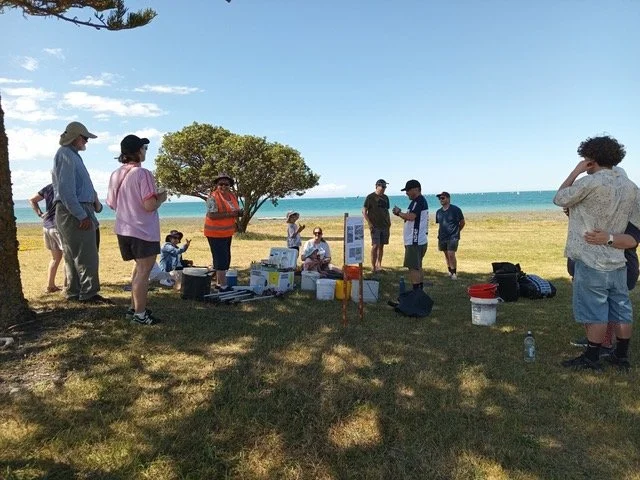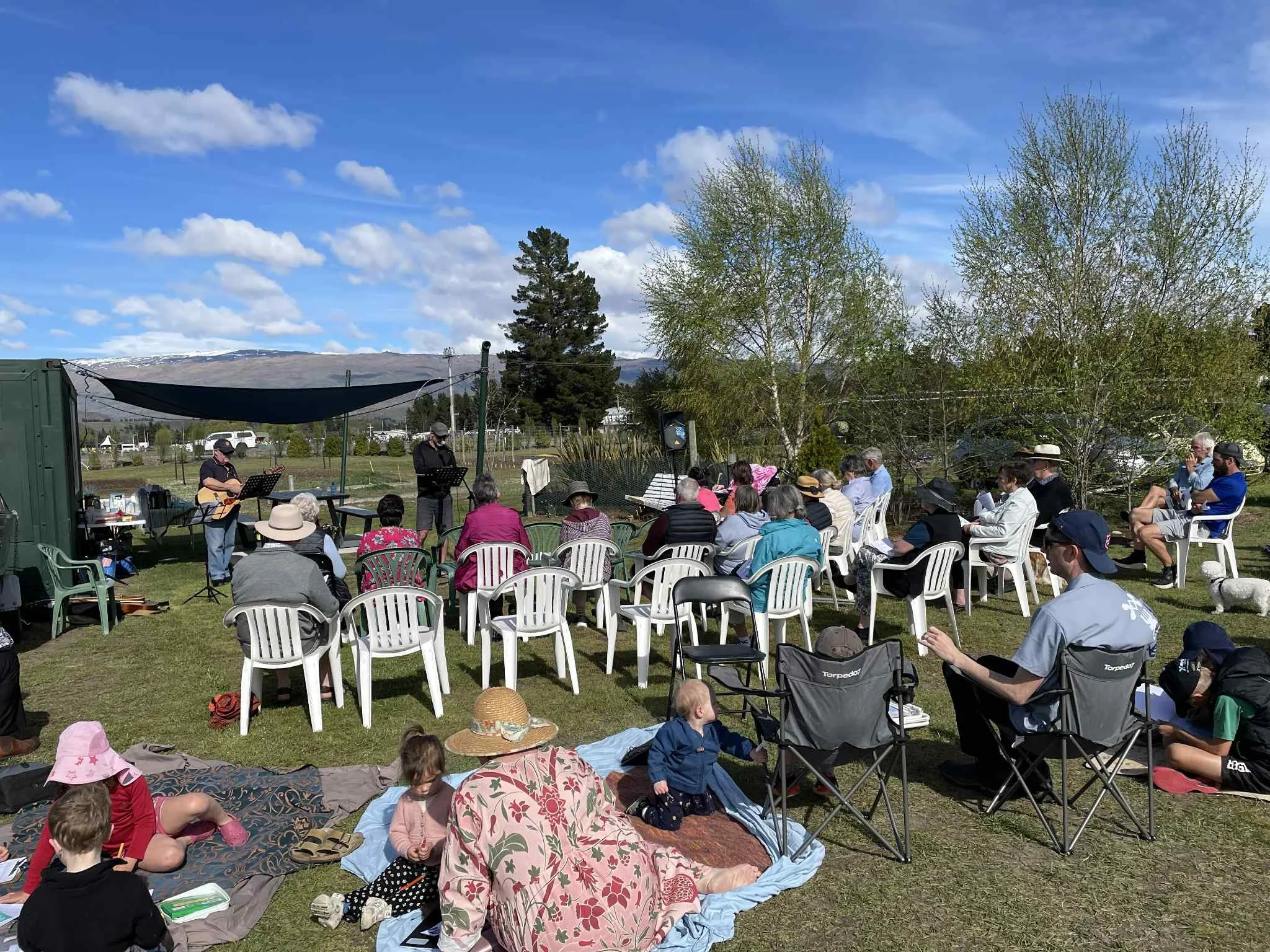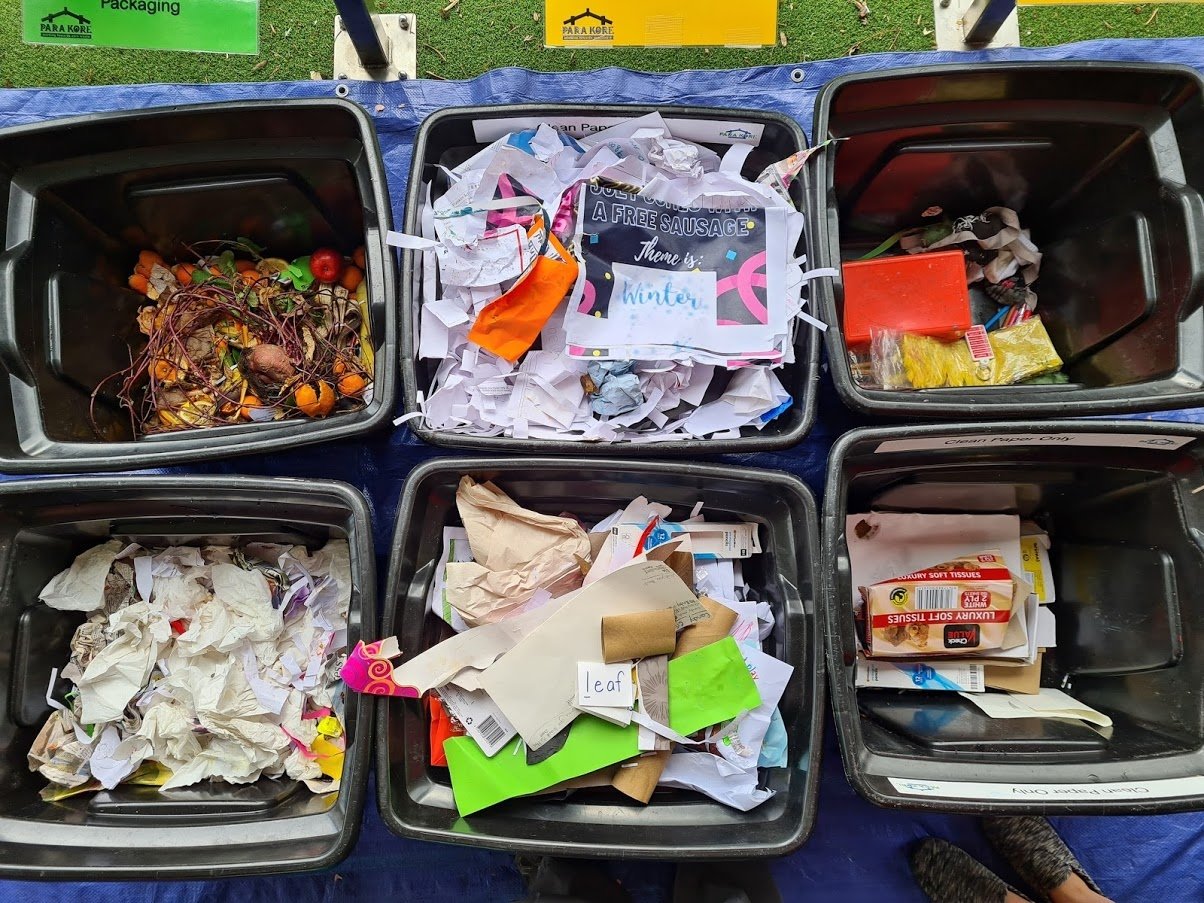
Waste
Reducing our waste is a good place to start on the Eco Church journey. It is practical and achievable. It is a good way to get the whole congregation on board and thinking about our impact on God’s world. It is also good to be working together with the other community groups who use church buildings. It shows that we care about the planet and that we are making the connections between what we say we believe and how we live that out.
Rubbish is not attractive; it is the stuff we’re finished with, it’s messy and we want it to be someone else’s problem. But every time we add to landfill we are wasting the good creation God has made, and adding to the vast piles that will continue to be a huge problem for generations to come. Thinking about our rubbish from a Christian faith perspective is about integrity: Are our values being expressed in our actions? Mission is not just what we show the world at the front door, it is also about what happens at the back door.
Reducing our waste…
saves money
involves rethinking what is purchased
is a whole-church project
creates opportunities for learning and community inspiration
makes a significant measurable impact.
Zero Waste Programme for Churches
Due to a change in Para Kore’s funding model, Eco Churches are no longer able to access free zero waste programmes through our partnership programme. We were able to offer this programme free of charge to church communities from 2020-2024. Currently, churches are still able to access zero waste programmes directly from Para Kore as part of their consultancy services or explore free zero waste initiatives from their local council.
Para Kore is a kaupapa Māori organisation with over a decade of experience working with community groups, marae and schools towards zero waste. There is so much for churches to discover and learn by working with Para Kore and by engaging with a Māori worldview as we work towards reducing waste together.
If your church is interested in journeying towards zero waste, please contact us and we will do our best to support you and discuss available options.
How to implement a zero waste programme at your church
We recommend starting with an introductory wānanga to understand the kaupapa of zero waste and what’s involved. We recommend inviting at least the following parties to the wānanga:
key church decision makers
staff responsible for church hireage
staff responsible for facilities maintenance
representatives from groups who use the church’s facilities and premises
You can use this introductory wānanga by Paul Murray, kaiārahi from Para Kore.
Once key church decision makers have decided to embark on a zero waste journey, we recommend communicating to the whole congregation about why the church is wanting to move towards zero waste.
A waste check is an activity that a Para Kore kaiārahi or a Council waste advisor might be able to help facilitate at your church. The waste check helps identify the current waste practices at your church. The waste check could happen after a church service, or an evening or a weekend. Invite as many people as possible from your church to attend the waste check to increase buy-in for the initiative. A number of churches have found it convenient to hold it after the Sunday service, as people can just stay back after church for it. Regular church hirers who use the church premises could also be invited to the waste check.
The results of a waste check will help your church have a better understanding of the types of waste that you are trying to divert from landfill. Your church can then explore goals and strategies to move towards zero waste and decide on what new systems to introduce at your church to support these goals.
A good waste reduction systems should be well communicated. Based on your waste strategy, explore creating signage to help waste reduction and provide appropriate waste reduction equipment such as composting bins and recycling bins.
The next step is to get your congregation, staff and other users of your facilities onboard with the new waste system.
If your church would like to track progress over time, another waste check can be done after a while to see if the new waste system is helping waste diversion.
Consider exploring additional wānanga on special topics for your church community if required - e.g. composting, worm farming.
Example:
A number of churches have tried out the format where the zero waste waste check happens on a Sunday after the main service. The Sunday service is themed around caring for creation or has a focus around zero waste (e.g. “Zero Waste Sunday”) so that the whole church congregation can be part of the learning and can get onboard the zero waste idea. Explore organising interactive group activities that are suited for all-age services and youth too. Church hirers who use the church premises regularly can also be invited to attend. Everyone is invited to stay back for the waste check after the service - this is an interactive and eye-opening experience for everyone participating - so encourage lots of people to stay for this. After the Sunday service, there’s usually a break either for refreshments or a simple lunch, followed by the waste check. During the waste check, a representative sample of waste from the church premises is sorted and checked through to identify waste that could be diverted from landfill. This then forms the baseline for tracking progress and provides insights into the waste minimisation and recycling strategies that are suitable for the church’s context and premises.
Zero waste support:
Wasted New Zealand - Educational video series that explores our key waste streams in NZ
Dumpsters.com - How to plan a waste audit
Beyond the Bin - How to work out your diversion from landfill
Wellington City Council - Waste education
Auckland Council - WasteWise Advisors
Hamilton City Council - Waste minimisation resources
Kāpiti Coast District Council - Zero waste education programme
Ruapehu District Council - Waste Minimisation and Sustainability Workshop
Check out other RESOURCES pages on this website for more zero waste support and information:
Small Group Resource
Rich Living: Waste - A Rocha’s small group booklet is available for download from the A Rocha website.
Talks and Presentations
Otago University Faith and Thinking series: “A Throwaway Society: Reflecting on Rubbish” by Andrew Shepherd.
Z is for Zero Waste: A-Z fun practical pointers for churches
We’ve put together a lighthearted A to Z zero waste poster that should appeal to all-ages that you can put up at your church. It should hopefully spark lots of ideas and discussion!
Planning a zero waste event at your church
Please see Zero Waste Events.
Waste and recycling signage
RecycleKiwi has free resources such as bilingual posters and stickers that you can order to set up your own recycling system and help reduce waste at your church. With the RecycleKiwi stickers and poster you can turn any regular bin into a clearly labelled recycling bin.
In 2016 the New Zealand Recycling Symbols (formerly known as the RONZ symbols) were updated. The choice of symbol depends on how recycling is separated in your church. You can also download bilingual recycling symbols from the WasteMINZ site to make your own signage:
If you prefer to purchase recycling bins with coloured lids, here are some supplier options:
https://www.wasteminz.org.nz/wp-content/uploads/2018/05/Recycling-bin-suppliers-August-2021.pdf
Best practice communications for waste minimisation
This guide from the Ministry for the Environment aims to improve the behavioural effectiveness of waste-related communications to households. A key focus is on supporting correct and increased participation in kerbside recycling and food scraps collections, as part of the standardisation of kerbside collections across Aotearoa New Zealand. It also goes beyond household waste collections to cover minimisation of food waste and single-use plastic waste.
Set up a Recycling Collection Hub at your church
Did you know you can recycle toothbrushes, empty toothpaste tubes, razors, cling wraps, and many other things? Check out this Terracycle page for a list of free national recycling solutions for a variety of waste streams. You could set up your church as a community collection hub for these waste streams - a great way to bring the community into your church! Or collect these items and send to a community collection hub near you.
You can also host a RE:MOBILE box at your church to collect old mobile phones for recycling. Find out more here: https://remobile.org.nz/how-to-recycle/
To help with resource recovery, we’re compiled a page of hard-to-recycle items with links to help you and your community recycle these things.
In December 2022 to March 2023, The Warehouse trialled “My Recycle Hub” - a collection station for ‘hard to recycle’ packaging. The Warehouse hope to deliver a long-term solution in the future. Could churches do something similar?
Run a Repair Cafe at your church
We throw away vast amounts of stuff. Even things with almost nothing wrong, and which could get a new lease on life after a simple repair. The trouble is, lots of people have forgotten that they can repair things themselves or they no longer know how. Knowing how to make repairs is a skill quickly lost. Church premises provide an ideal hub to engage church and local communities to run Repair Cafes. Repair Cafes are free meeting places, and they are all about repairing things together – people with broken items and repair specialists coming together to repair and learn or just enjoy a cup of tea or coffee. Valuable practical knowledge is getting passed on. Things are being used for longer and don’t have to be thrown away.
Repair Cafe NZ is an independent Steering Committee dedicated to providing resources and support to community groups around New Zealand wishing to run Repair Cafe events. For more background info, please also visit the international Repair Cafe website.
Campaigns & Challenges
Plastic Free July - Every year in July, thousands of people take part in the Plastic Free July challenge by choosing to refuse single use plastic. Check out the Plastic Free Aotearoa facebook page and instagram.
A Rocha hosted an Eco Church Kōrero about plastic waste with a focus on the UN Plastics Treaty in Nov 2022. The kōrero also included discussion on ways our faith communities can be part of this global initiative. The kōrero featured guest speaker Dr Trisia Farrelly from the Aotearoa Plastic Pollution Alliance (APPA). Click here for a link to the recording and further resources to explore around this topic.
Tearfund’s Rubbish Campaign - A variety of resources to help you get your church or small group involved in Tearfund’s Rubbish Campaign. These include Rubbish Talks for you to use or adapt, a Rubbish Event leader’s guide for a stand-alone event exploring waste and consumerism, and a range of fun and creative all-age Rubbish Activities to get your whole church involved.
The Rubbish Challenge: 10 Steps to Less Waste in 10 Months - The Rubbish Challenge is a resource written by Silvia Purdie. The Rubbish Challenge is a brief resource for churches, groups, families and individuals, designed to fit into your newsletter. Each month there’ll be thought, a verse, a prayer, and a practical task to do. Plus links to more material. It is a series of little actions, one each month. Together they add up to a big impact.
#TakeawayThrowaways - A campaign calling on the Government to ban single-use disposable food and drink serviceware containing plastic (including degradable, biodegradable or compostable plastic), and mandate co-designed, accessible, reusable alternatives instead.
#UYO - Minimise your church’s hospitality footprint through the Use Your Own campaign - especially relevant if your church has a café that is currently using disposables. Lots of guides and free signage to move from disposable to reusable.
Zero Waste Shopping Guide
Zero Waste Spot - An interactive map of zero waste shopping options across Aotearoa New Zealand, researched and maintained by The Rubbish Trip, and kindly hosted and designed by Eco Spot and the team at Sugarcube Studios!
Websites / Podcasts by Zero Waste champions in New Zealand
The Rubbish Trip - The two No-waste Nomads behind The Rubbish Trip are Hannah Blumhardt and Liam Prince. Here’s what they have to say: “We started living zero waste at the beginning of 2015, in our home town of Wellington, New Zealand. We were spurred by concern about the massive amount of plastics in the oceans, the staggering levels of energy and inefficiency associated with producing and managing disposable products, and how throwaway, high-consumption culture is shaping community mindsets and living spaces. Motivated to spread awareness, in Plastic Free July 2016 we began talking to community groups, schools, businesses and households about how to reduce rubbish, and why it is important. After countless people told us that we had inspired them to reduce their waste footprint, we felt we could make a real difference by stepping things up a notch. So… we decided to go full-time and take our zero waste presentations on the road.”
Rubbish Free - Matthew Luxon and Waveney Warth created this website to help New Zealanders on their zero waste journey. They blogged about how their decision to commit to a year of living without creating any rubbish - and documented week by week the challenges of doing so.
How To Save The World - An environmental podcast that uses science, humour and suggestions on real world action you can take to make a positive contribution to help the planet. Hosted by Waveney Warth (an environmental advocate who went 100% waste-free for an entire year) and Tim Batt (a comedian who’s trying to learn and do better by the planet). They discuss everything from organic farming to Fairtrade, to renewable energy to greenwashing, aiming to inform and arm you with ways to help the environment.
Zero Waste Digital Summit - The Zero Waste Network organised a Zero Waste Digital Summit in November 2020. All the presentations are now available for viewing covering topics such as reuse systems, creating change towards zero waste, organics, product stewardship, zero waste culture, practical zero waste, zero waste technology, anti-incineration, community approaches to zero waste, and zero waste design. A great opportunity to listen to experts in this field!
Useful Videos
The Story of Stuff Project - Their first movie, The Story of Stuff, started it all, launching an honest conversation about our consumption-crazed culture. Since then, they've produced dozens more animated shorts and documentaries that chart a path to a more just and sustainable future. They have a whole series on The Story of … series which cover Stuff, Bottled Water, Cosmetics, Electronics, Microbeads, Microfibres and many other topics. There are also many other documentaries on their website such as Plastic Documentaries and Water Documentaries.
Para Kore - Our partner in Zero Waste produces many videos on Zero Waste from a uniquely Aotearoa perspective. They showcase some of the Zero Waste efforts at marae around the country and also links to many other inspiring videos on their website. Para Kore’s youtube channel is also worth checking out with lots of short videos and tips for those on the Zero Waste journey.
Relevant Eco Church NZ Stories







